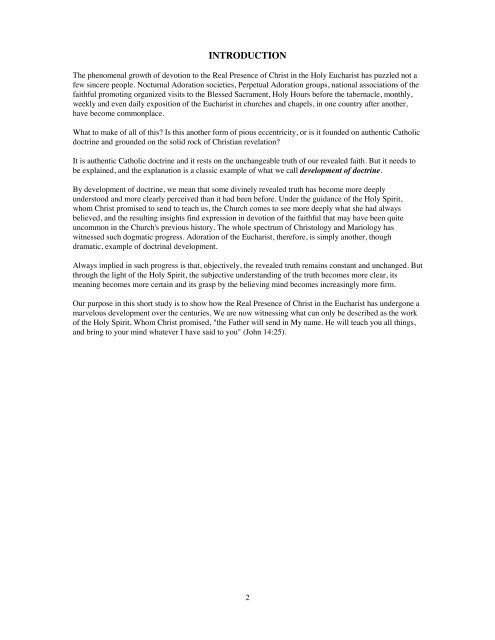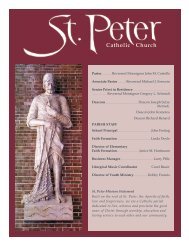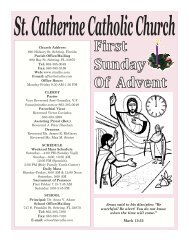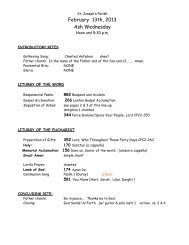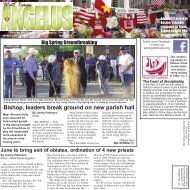The Perpetual Eucharistic Adoration Manual.pdf - Flocknote
The Perpetual Eucharistic Adoration Manual.pdf - Flocknote
The Perpetual Eucharistic Adoration Manual.pdf - Flocknote
Create successful ePaper yourself
Turn your PDF publications into a flip-book with our unique Google optimized e-Paper software.
INTRODUCTION<br />
<strong>The</strong> phenomenal growth of devotion to the Real Presence of Christ in the Holy Eucharist has puzzled not a<br />
few sincere people. Nocturnal <strong>Adoration</strong> societies, <strong>Perpetual</strong> <strong>Adoration</strong> groups, national associations of the<br />
faithful promoting organized visits to the Blessed Sacrament, Holy Hours before the tabernacle, monthly,<br />
weekly and even daily exposition of the Eucharist in churches and chapels, in one country after another,<br />
have become commonplace.<br />
What to make of all of this? Is this another form of pious eccentricity, or is it founded on authentic Catholic<br />
doctrine and grounded on the solid rock of Christian revelation?<br />
It is authentic Catholic doctrine and it rests on the unchangeable truth of our revealed faith. But it needs to<br />
be explained, and the explanation is a classic example of what we call development of doctrine.<br />
By development of doctrine, we mean that some divinely revealed truth has become more deeply<br />
understood and more clearly perceived than it had been before. Under the guidance of the Holy Spirit,<br />
whom Christ promised to send to teach us, the Church comes to see more deeply what she had always<br />
believed, and the resulting insights find expression in devotion of the faithful that may have been quite<br />
uncommon in the Church's previous history. <strong>The</strong> whole spectrum of Christology and Mariology has<br />
witnessed such dogmatic progress. <strong>Adoration</strong> of the Eucharist, therefore, is simply another, though<br />
dramatic, example of doctrinal development.<br />
Always implied in such progress is that, objectively, the revealed truth remains constant and unchanged. But<br />
through the light of the Holy Spirit, the subjective understanding of the truth becomes more clear, its<br />
meaning becomes more certain and its grasp by the believing mind becomes increasingly more firm.<br />
Our purpose in this short study is to show how the Real Presence of Christ in the Eucharist has undergone a<br />
marvelous development over the centuries. We are now witnessing what can only be described as the work<br />
of the Holy Spirit, Whom Christ promised, "the Father will send in My name. He will teach you all things,<br />
and bring to your mind whatever I have said to you" (John 14:25).<br />
2


